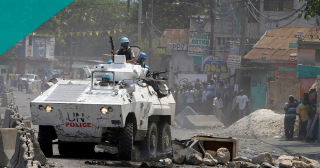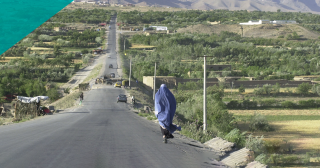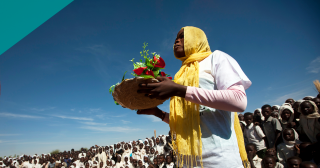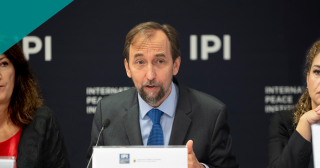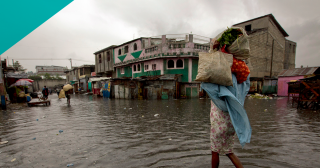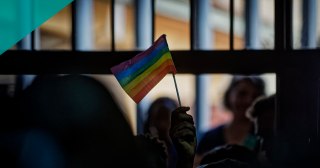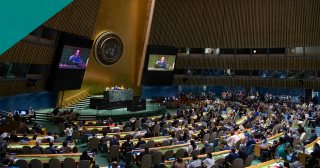Reforming peacekeeping to foster sustainable peace must include an interrogation of militarized masculinities and their harmful gendered consequences.
Tag: Women‚ Peace and Security at 21
-
-
The prevention pillar of the WPS agenda focuses on preventing the root causes of war and violence. Efforts being made under the protection and participation pillars can fundamentally contradict the prevention pillar. Nowhere is this more visible than in Afghanistan.
-
Despite occurring in the same contexts, sexual exploitation and abuse (SEA) and conflict-related sexual violence (CRSV) have largely remained theoretically and practically separated. This obscures the overlap between SEA and CRSV and denies survivors of SEA pathways to justice, including through post-conflict transitional justice mechanisms.
-
In this first interview since being appointed president and CEO of the International Peace Institute (IPI) in March 2020, Zeid Ra’ad Al Hussein shares his views on the Women, Peace and Security agenda and the role of the United Nations.
-
The time is ripe for innovative thinking and pragmatic solutions at the nexus of the international climate change and WPS agendas.
-
The WPS agenda is largely failing to account for the experiences of LGBTQ+ people, both in African countries and globally.
-
How the ten elected members of the Security Council act, and the issues they raise, can have a lasting effect.
